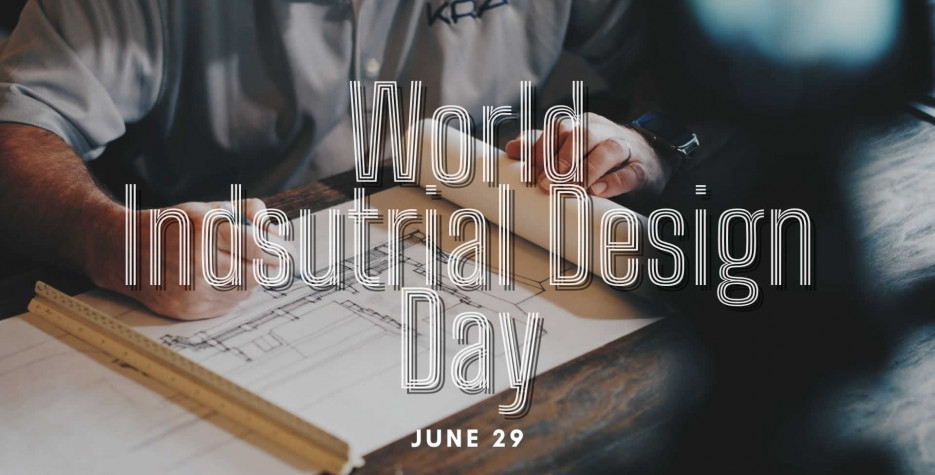About World Industrial Design Day
Observed annually on June 29th, World Industrial Design Day (WIDD) celebrates and recognizes the power of design to strengthen economic, social, cultural, and environmental development around the world.
Established in 2008, it represents the first international day of observance created uniquely to highlight the merits of the industrial design profession and its impact on quality of life.
As an open-source programme, WIDD engages the global design community under the banner of a different theme each year, encouraging the development of design-led events, activities, workshops, competitions and exhibits.
Origins of World Industrial Design Day
The International Council of Societies of Industrial Design (Icsid) initiated World Industrial Design Day in 2007, with the first official celebration taking place in 2008. The date, June 29th, was chosen to commemorate the establishment of Icsid in 1957, symbolizing the organization's dedication to advancing industrial design on a global scale. Since then, World Industrial Design Day has become a significant event for designers, educators, businesses, and design enthusiasts around the world.
What is Industrial Design?
Industrial design, often regarded as the unsung hero behind countless everyday products, plays a pivotal role in our lives. From the sleek contours of your smartphone to the ergonomic design of your office chair, industrial design influences the form and function of virtually every item we interact with. In this article, we will delve into the significance of industrial design and its profound impact on innovation, user experience, and the overall advancement of society.
Innovation Catalyst:
Industrial design serves as a catalyst for innovation, pushing the boundaries of what is possible. Designers collaborate with engineers, manufacturers, and other professionals to create products that are not only visually appealing but also functionally efficient. The integration of aesthetics and functionality not only enhances the user experience but also fosters innovation by challenging conventional design norms.
User-Centric Solutions:
One of the fundamental principles of industrial design is a focus on the end user. Designers strive to understand the needs, preferences, and behaviors of consumers, ensuring that the final product not only meets but exceeds expectations. This user-centric approach results in products that are intuitive, accessible, and seamlessly integrate into users' daily lives, ultimately enhancing their overall satisfaction.
Brand Identity and Recognition:
Industrial design is a powerful tool for building and maintaining brand identity. Iconic product designs, such as the iPhone or Coca-Cola bottle, become synonymous with the brands they represent. A distinctive and well-thought-out design not only sets a product apart from competitors but also communicates the values and ethos of the brand to consumers.
Sustainability and Environmental Impact:
In an era where environmental concerns are at the forefront, industrial designers play a crucial role in creating sustainable solutions. The choice of materials, manufacturing processes, and the life cycle of a product are all integral considerations in industrial design. By prioritizing sustainability, designers contribute to the global effort to reduce waste and minimize the environmental impact of consumer goods.
Economic Impact:
The economic significance of industrial design cannot be overstated. Well-designed products are more likely to gain market acceptance, driving sales and stimulating economic growth. Moreover, design-driven companies often find themselves at the forefront of innovation, attracting investment, and creating high-quality jobs in the process.
Cross-Disciplinary Collaboration:
Industrial design involves collaboration across various disciplines, including engineering, marketing, and manufacturing. This interdisciplinary approach fosters a holistic view of product development, ensuring that diverse perspectives are considered. The synergy between different fields results in well-rounded products that not only meet technical specifications but also resonate with consumers on an emotional level.
The Impact of Industrial Design
Industrial design is a multifaceted field that merges art, science, and technology to create products that not only serve practical functions but also engage users aesthetically. From the sleek lines of smartphones to the ergonomic design of furniture and the user-friendly interfaces of everyday appliances, industrial design influences our interactions with the world. It extends beyond aesthetics, emphasizing functionality, usability, and sustainability, contributing to the overall quality of life.
https://www.facebook.com/worldindustrialdesignday/
https://wdo.org/programmes/widd/
Similar Observances
World Quantum Day ⚛️
Read More










